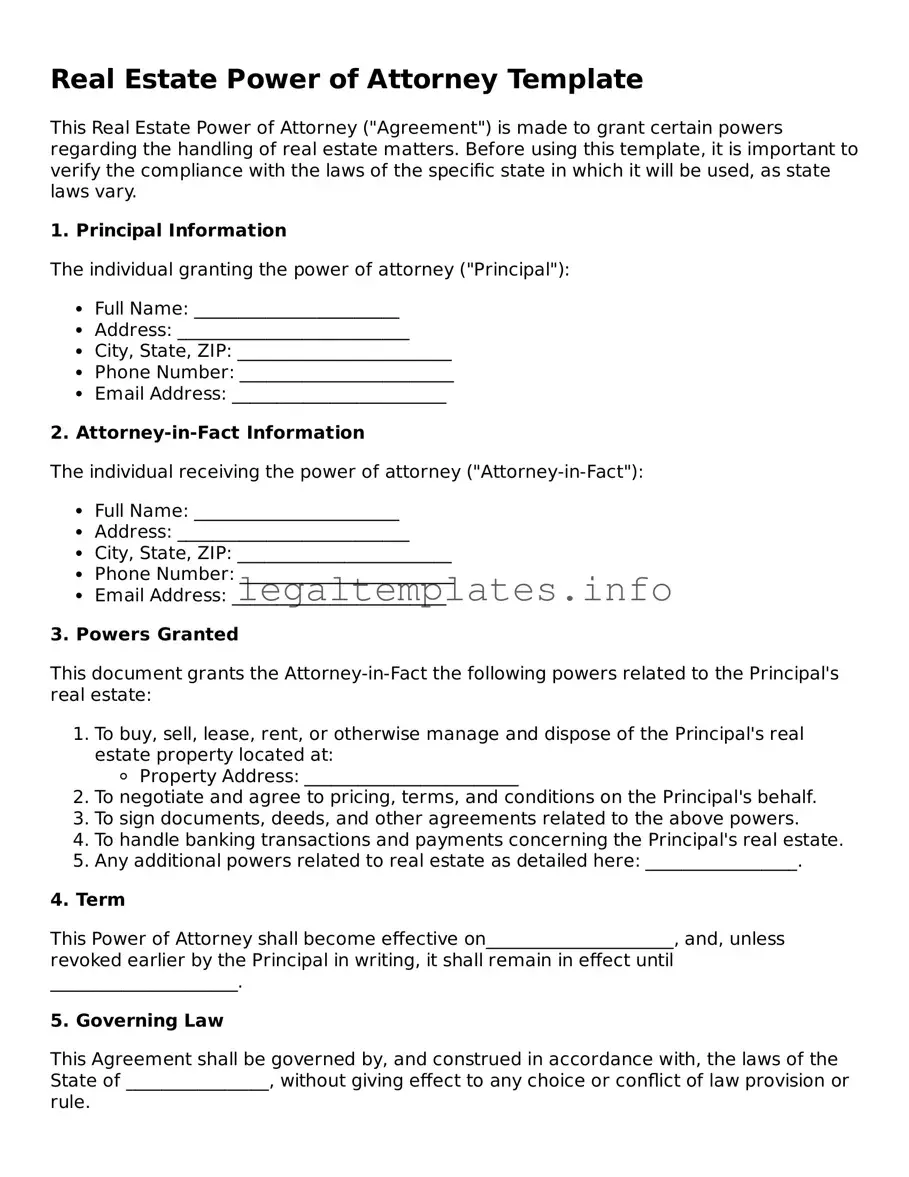What is a Real Estate Power of Attorney?
A Real Estate Power of Attorney (POA) is a legal document that grants an individual the authority to act on another person's behalf in matters related to real estate. This can include buying, selling, managing, or leasing property. The person granting this power is known as the principal, while the individual receiving the power is referred to as the agent or attorney-in-fact.
Why might someone need a Real Estate Power of Attorney?
There are numerous reasons someone might need a Real Estate POA, such as illness, disability, absence from the area, or serving in the military overseas. It ensures that important real estate transactions can proceed without delay, even if the principal cannot be present to handle them personally.
Can a Real Estate Power of Attorney be revoked?
Yes, a Real Estate POA can be revoked at any time by the principal, as long as they are mentally competent. The revocation must be done in writing and, in many cases, formally recorded or notified to relevant parties, like the agent or institutions involved in the real estate transactions.
How does one choose an agent for their Real Estate Power of Attorney?
Choosing an agent is a critical decision. The agent should be someone the principal trusts deeply, as they will have significant control over the principal's real estate assets. It's often recommended to select someone who is not only trustworthy but also has some knowledge of real estate or financial matters.
Is a Real Estate Power of Attorney different from a General Power of Attorney?
Yes, a Real Estate POA is more specific than a General Power of Attorney. It limits the agent's powers to real estate affairs, whereas a General POA can grant broad authority over many aspects of the principal's life and finances.
What happens if the principal becomes incapacitated?
If the Real Estate POA is durable, it remains in effect even if the principal becomes incapacitated. Without durability provisions, the POA typically ends if the principal is no longer mentally capable, meaning a court-appointed guardian or conservator would then make decisions on behalf of the principal.
Does a Real Estate Power of Attorney need to be notarized and/or witnessed?
Requirements can vary by state, but generally, for a Real Estate POA to be legally binding, it must be notarized. Some states also require the document to be witnessed by one or more adults who are not parties to the document.
Can a Real Estate Power of Attorney be used to sell property?
Yes, if the POA specifically grants the agent the authority to sell property on behalf of the principal, the agent can do so. It's important that the document details the agent's powers clearly, including any limitations or conditions.
How long is a Real Estate Power of Attorney valid?
The duration of a Real Estate POA can vary. It might be set to expire on a specific date, upon the completion of a particular transaction, or it might be effective indefinitely until revoked. The terms should be clearly stated within the document.

